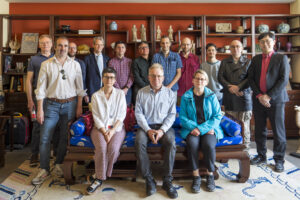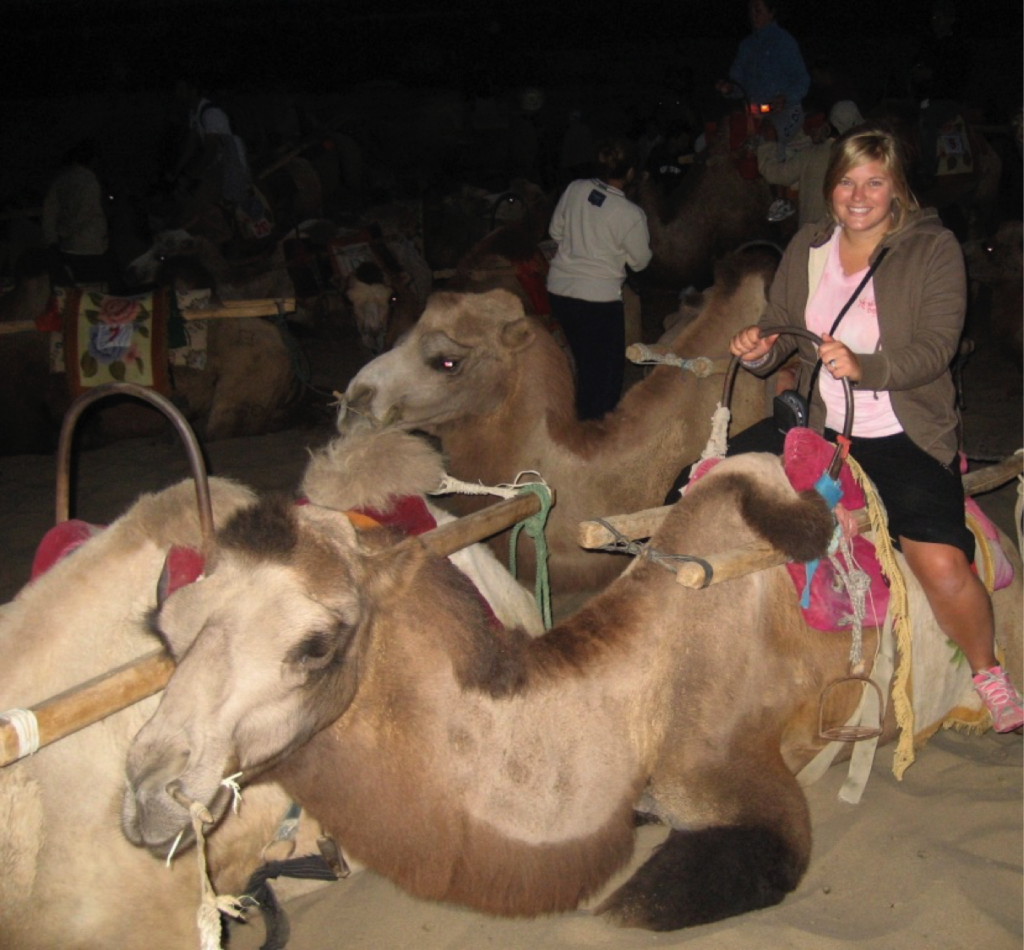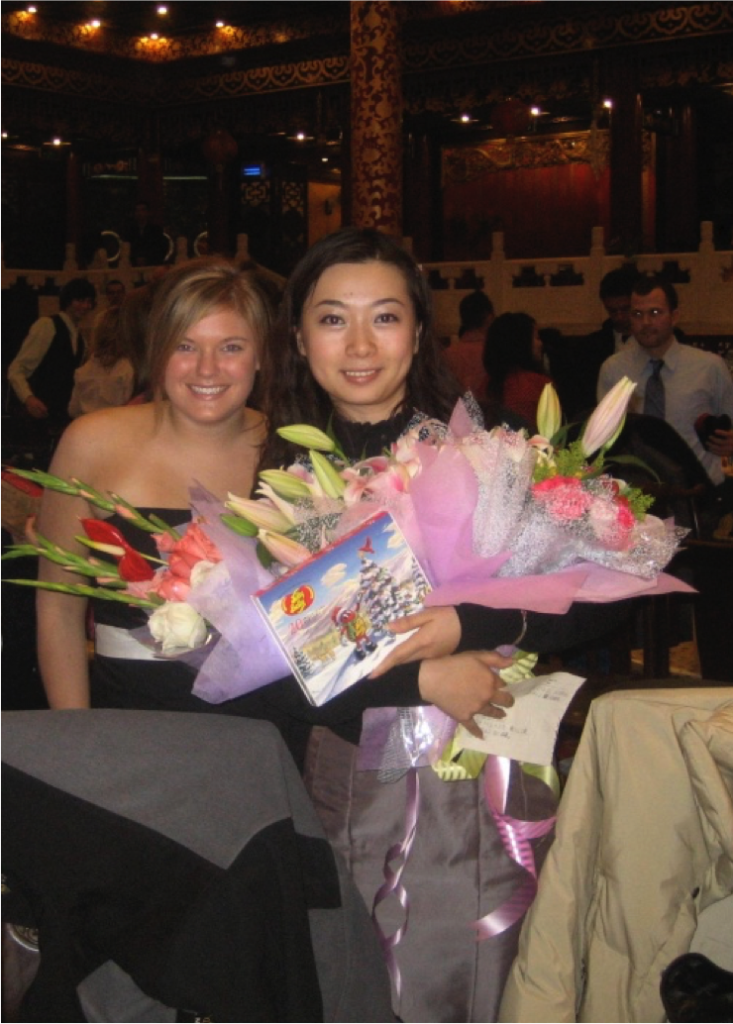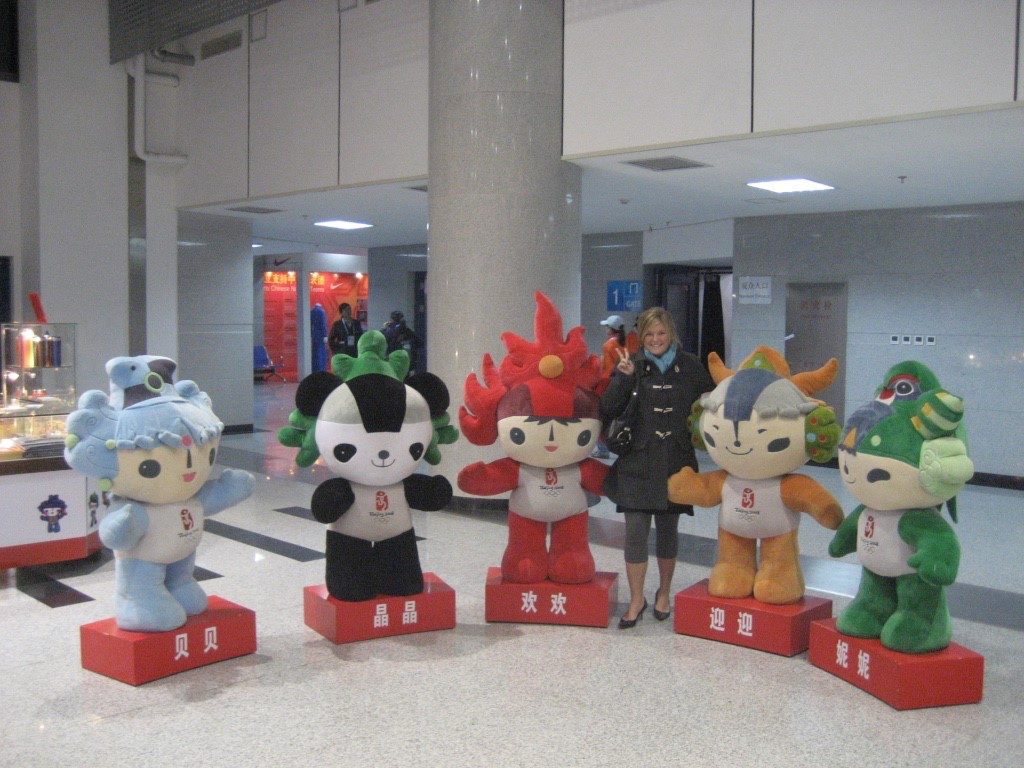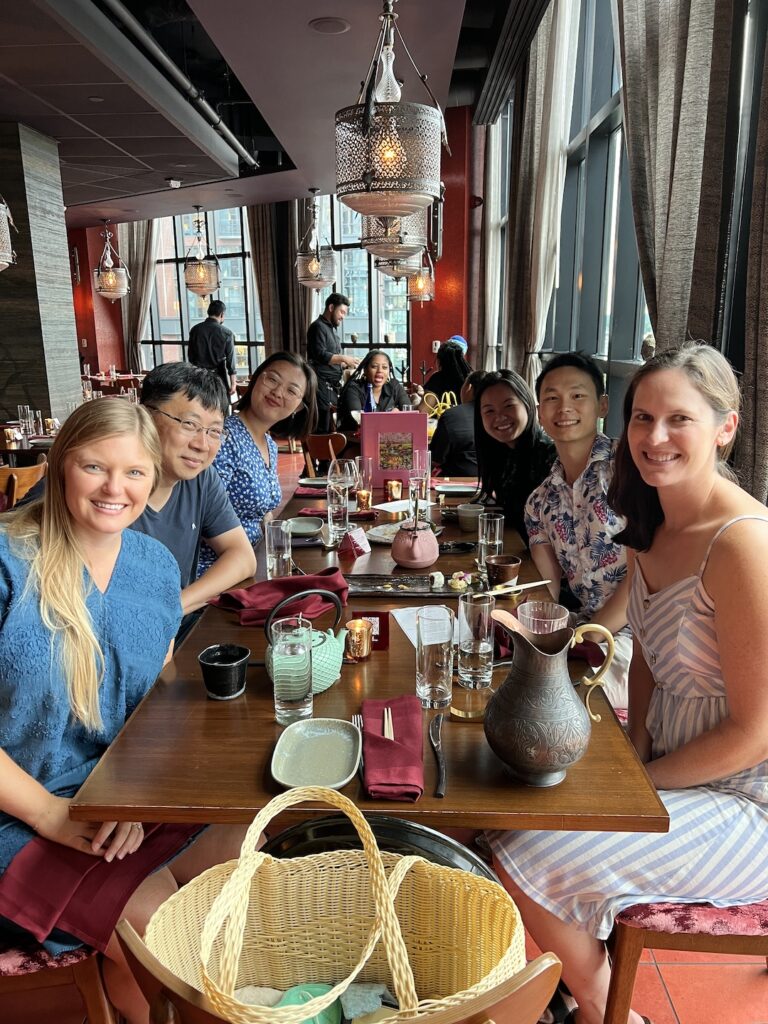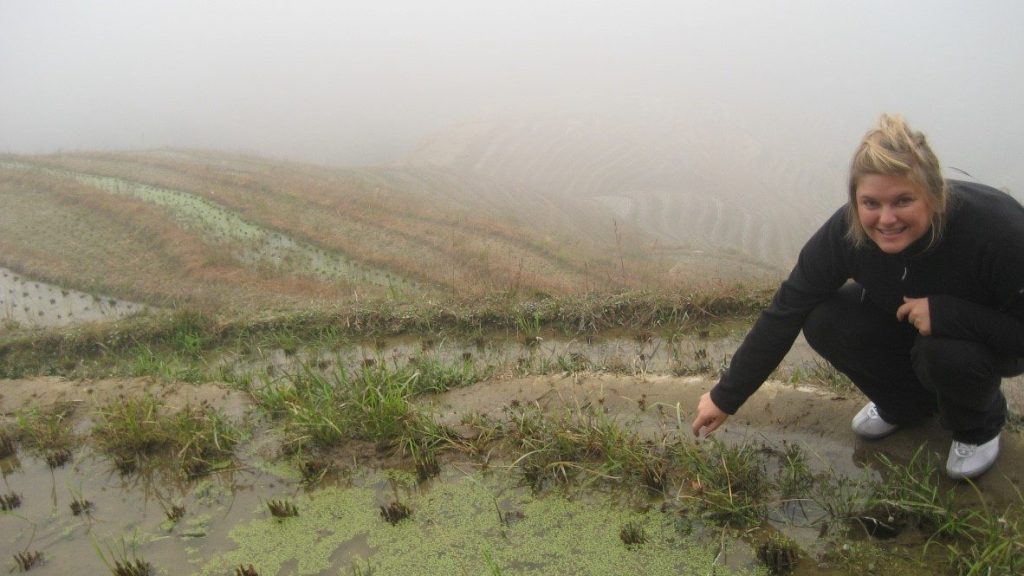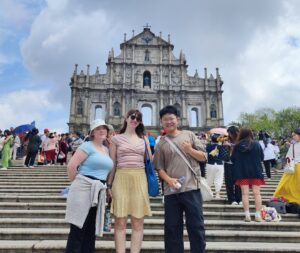What was TBC like during that time? Do you have any memorable classes or professors?
One of the things I most clearly remember was how huge our class was – we had a hundred and twenty-something students, which was record-breaking at the time. It was really cool to have students from all over the US and a good chunk from the Philippines, and to be able to meet and interact with other UIBE international students from Africa and the Middle East in the shared dorm. We took up a lot of space in the room, but because we were so large, we easily made friends with students at UIBE from Africa and the Middle East. Back then, TBC didn’t have the Chinese Roommate program, but many students had studied Chinese and were “sinophiles” so we still had them to rely on.
I spent a lot of time as a student in TBC’s library – it’s beautiful, usually quiet, and had so many interesting books and artifacts too. Our first big trip was across the Silk Road, which focused a lot on Marco Polo and archeological discoveries, and so to come back and re-discover the treasures in the library that were from the Silk Road or were so historical from the time of the Silk Road was just amazing to me.
Another really great professor was Shen Weirong, who also taught at Renmin University. He led history class, archeology class, and was an expert in Tibetan Buddhism so he was the lead for the Silk Road excursion. I ended up spending a lot of time with him, learning with him and meeting with people from ethnic minorities because he taught and worked with many of them for his research. He really knew everything, so we all called him Genius. I also took martial arts with Howard Hao, who I understand is still teaching at TBC to this day. I remember most of his classes starting with running around outside to warm up.
What was it like being in a country where you didn’t speak the language?
One of the things I liked most about my time at TBC and living in a country where I did not know any of the language was that the public space was really my classroom. I could go out and immediately apply what I learned in the classroom at restaurants, taxi drivers, street vendors etc. I would have class, then go out for lunch and immediately used what I learned in class. I feel a little bad for all the street vendors and taxi drivers who were my guinea pigs for language learning, but also it helped me so much and I usually got where I wanted to go. Even to this day, I’m much more comfortable speaking Chinese, even though I studied Spanish longer because I learned it in-country and all the confidence that comes with that.
I remember this particular time I was trying to get to a friend’s rugby match at the Chaoyang Stadium. I had the address on a piece of paper, but of course it was written in Chinese. So I showed it to the taxi driver and got dropped off at a stadium. I trusted he knew what he was doing.
Well, the stadium was closed, and the only person there was a guard who didn’t speak any English but kept trying to tell me that there’s no event going on and that I was in the wrong place. But that couldn’t be right, so I thought I would ask if there’s two stadiums with similar names, and how to get to that other Chaoyang Stadium. But the only thing I knew how to say to mean ‘also,’ ‘additionally,’ or ‘other,’ was 也 (ye, an adverb that means ‘also; too; as well; already). I don’t think it was the right usage, I was basically asking him ‘Where is the also stadium?’ But it was all I knew, it was only two weeks in or so to the semester. I really didn’t know much more beyond ‘Hi, my name is Meagan.’ I was pointing to the stadium, then saying 也, then the paper, trying to say ‘there’s another, there’s got to be another!’ After a long five minutes, he actually did get it! He helped put me in a cab and tell the driver where to go, so I still remember 也 to this day because of that conversation.
